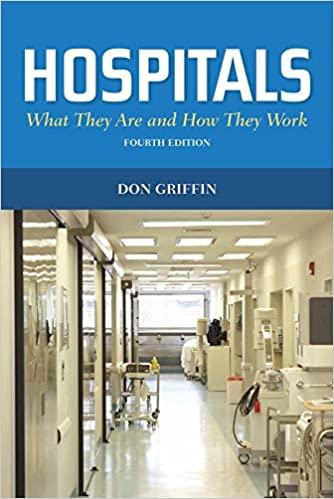Question
Transcript: Planning for the Harvest. Alfonso has grown a sizable pickle business. Known throughout the Midwest for their unique flavor and inimitable crunch, QuickPickles are
Transcript:
Planning for the Harvest. Alfonso has grown a sizable pickle business. Known throughout the Midwest for their unique flavor and inimitable crunch, QuickPickles are a staple in every pickle connoisseur's cabinet. Alfonso himself has acquired something of a regional presence as well. Featured on business magazine covers and even once on the Food Network, he is a real-life rags-to-riches story who is sometime called The Pickle Master. His success has made Alfonso think about what he would like to do next. He knows that he could retire, but what about the company? One thing he does know-he wants to eventually move on to other things. Alfonso considers four options. The first, passing it on to the family, is not possible because he never had children. He is not married and has every intention of remaining single. No one else is close enough to him to merit passing it on. The second option is to wind the business down. He could take more money out of the business for himself and invest less in growth, one day simply closing the doors. Though attractive in some ways, he would like to see the business survive - after all, he considers it his legacy in many ways. An IPO (Initial Public Offering) would be another option, but Alfonso realizes that it would be a long, grueling process. IPOs are expensive and uncertain as well, making him wonder whether it might work against his goal of moving himself out of the day-to-day operations of the company, at least until the IPO goes through. The last and most attractive option that Alfonso considers would be to sell. He knows that some large food distributors are interested, but until now he has not been willing to negotiate. What was once unthinkable, though, no longer seems so out-of-the-question. There are many possible buy-out options. Alfonso might find a company willing to do a leveraged buy-out (LBO--a purchase financed by debt with the intent of selling off its assets). This was not the most attractive idea, but it was worth considering. He would prefer a build-up rather than a tear-down LBO, one where the purchasers bundle QuickPickle with other companies for a sale. While chatting with an old friend, Alfonso learned of another option-he can sell to managers and/or employees. His friend explains that an ESOP (Employee Stock Ownership Plan) would allow employees to own the firm. He really likes this idea. Some of those people have been with him for years and he would like to give them a chance to benefit from the transaction. Though he does not want to leave for another five years, he will start setting up the ESOP now. Alfonso is excited and relieved that the people who worked for him for so long can now benefit from the company's growth. Alfonso recently sat down with one of his top and most promising employees to explain what exactly the "secret sauce" was for his successful pickles: 1) Plan for the harvest early. Have in mind what your ultimate goal is. Waiting until sickness, old age, or a downturn force the decision paints you into a corner. 2) Decide how your family fits in the picture. Don't assume that they want to carry on with the business you founded. 3) If your primary motivation is the money, go for the kinds of exits that pay off big-a buy-out or an IPO for example. If it is the business itself that you love, consider having your offspring or your employees keep it going. 4) Build genuine value into your company. Don't cut corners and don't grow so fast that quality suffers. You want to have choices later in life.
Questions:
Judging from the video, Alfonso's primary motivation as he moves out of the business he founded is:
a. To maximize the cash value of QuickPickle just before he exits.
b. To finally grab the brass ringthe IPO and all the news and fame that goes with it.
c. To hand the company off to a larger company so that it can grow even larger.
d. To provide a way for his loyal employees to benefit from QuickPickle in the coming years.
The best way to describe the difference between a "build-up" and a "tear-down" leveraged buy-out (LBO) is:
a. Build-up LBOs fund a rapid expansion; tear-down LBOs intentionally shrink the company just before the sale.
b. Build-up LBOs are preceded by a press campaign touting the firm's performance; tear-down LBOs are driven by "leaked" bad press to make it look weak.
c. Build-up LBOs are set up by engaging in geographical expansion that may interest foreign buyers; tear-down LBOs are set up by selling off foreign assets.
d. Build-up LBOs are designed to make the company more attractive to buyers by bundling it with other companies; tear-down LBOs focus on splitting the company into pieces for sale.
Which of the following statements is false?
a. Retiring from the company one has founded is difficult and complicated.
b. Harvest should be on a business owner's mind from the start.
c. Some options for harvest may include the dissolution of the company.
d. Succession issues tend to apply only to family run businesses.
Step by Step Solution
There are 3 Steps involved in it
Step: 1

Get Instant Access to Expert-Tailored Solutions
See step-by-step solutions with expert insights and AI powered tools for academic success
Step: 2

Step: 3

Ace Your Homework with AI
Get the answers you need in no time with our AI-driven, step-by-step assistance
Get Started


